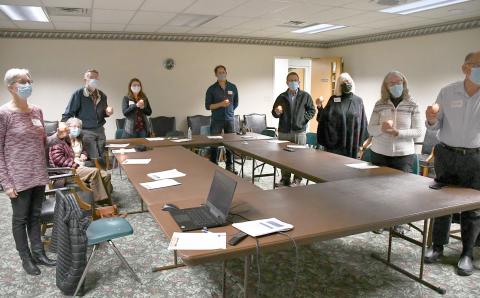I grew up in a different age. At times it feels as if I grew up in a different world. In the world of my childhood, information arrived in newspapers, and televisions were often not even present in homes. When they were present, the three networks that existed aired news and family-friendly entertainment in all of their black-and-white splendor.
Our world has changed. In many ways, this change has been for the better. In others, the human side of change has resulted in things we now grieve and lament.
When I was younger, technology was used to broadcast to as many parts of the population as possible. Today, technology has moved us toward “narrowcasting,” or selectively distributing our messages to smaller segments of society who are interested in hearing or reading what we have to offer. As consumers, we can pick and choose which narrowcasted content we want to receive.
Like anything, this change can have negative effects. We’ve seen narrowcasting lead to echo chambers of information. It has hurt our ability to debate and disagree civilly. And it has led to a proliferation of misinformation, polarization, and division.
On the positive side, we can also use podcasts and other narrowcasting technology to reach virtually anyone on the globe with messages of hope, peace, and love as we share the gospel. As people opt in to the content we make available, we can foster their faith, deepen their understanding of specific issues, and motivate them to join us in acts of Christian service.
Whether we use new opportunities and new technologies for better or for worse is a function of who we are as human beings. As Christians we are called to use all things for God’s glory. That includes our technology.
In an age where virtually every message—whether delivered via network television, cable news, social media, or from the pulpit—can be used as a divisive shibboleth, we are called to do more and to be better. As anointed people of God, we should be using technology to reveal the beauty and complexity of creation, to express art in all its forms, and to reach others with the story of God’s goodness and grace. We should be proclaiming God’s Word using all available means.
The ministries of the Christian Reformed Church use technology in a variety of ways around the globe. Podcasting in particular has become a tool that helps us partner with churches and classes for God’s kingdom purposes. You can read about several CRCNA podcasts in this issue of The Banner. These articles highlight small ways in which technology is being used to carry our kingdom messages into places where other means are less accessible.
In the United States this is also Black History Month—a month for celebrating and recognizing the many contributions of Black people to our North American culture. The Office of Race Relations, celebrating 50 years this year, is helping the denomination reach its stated vision of being “a diverse family of healthy congregations, assemblies, and ministries expressing the good news of God’s kingdom that transforms lives and communities worldwide.”
May God grant us his favor as we lean into this worthwhile direction.
To God be the glory!
Colin P. Watson Sr.
Executive Director of the CRCNA
About the Author
Colin P. Watson Sr. is the executive director of the CRCNA. He is a member of Madison Square Christian Reformed Church in Grand Rapids, Mich.








